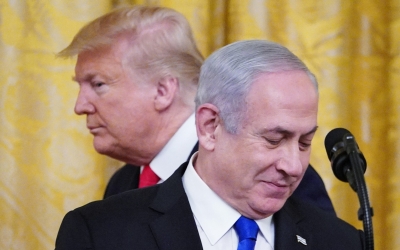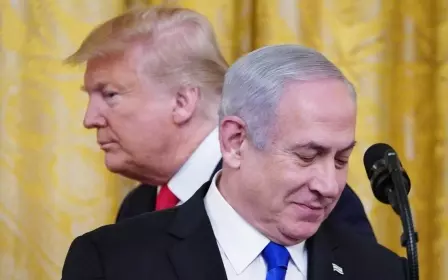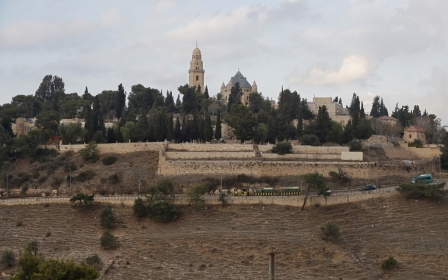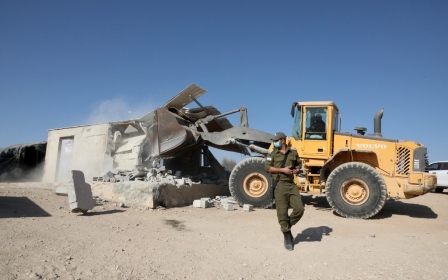Israel moves forward with new Jerusalem settlement ahead of Biden presidency
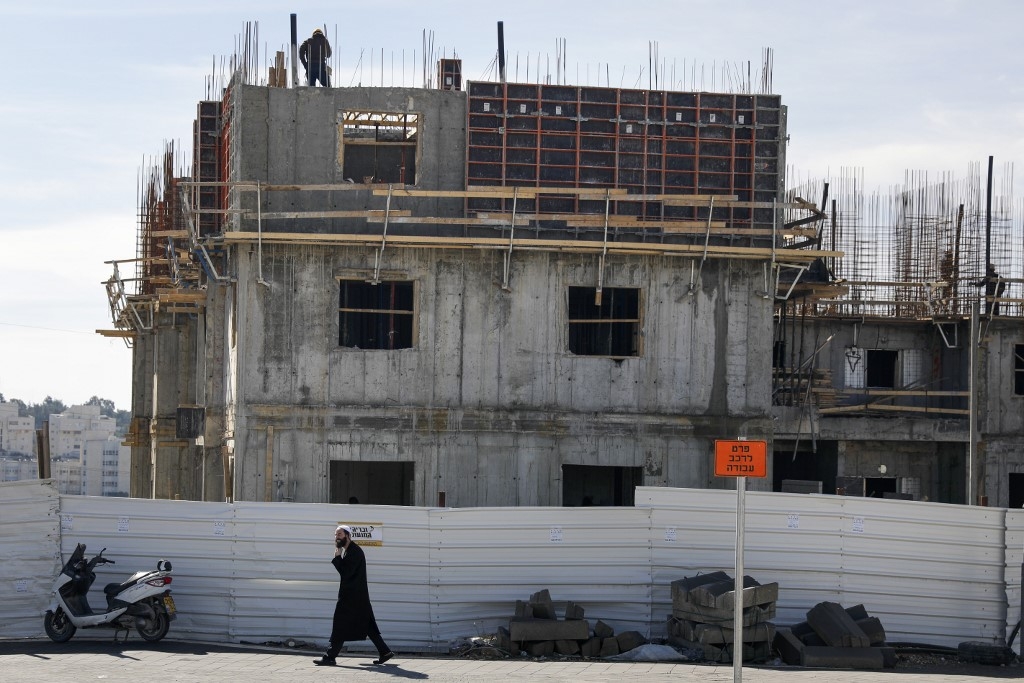
Israel has pushed on with plans to build a new settlement neighbourhood in occupied East Jerusalem, a watchdog group said on Sunday, warning that such efforts were being stepped up before US President Donald Trump leaves office in January.
The Trump administration has broken with decades of bipartisan US practice by not opposing Israeli settlement activity in East Jerusalem and the occupied West Bank. President-elect Joe Biden has said his administration will restore US opposition to settlements, which are illegal under international law and many governments view as an obstacle to peace.
New MEE newsletter: Jerusalem Dispatch
Sign up to get the latest insights and analysis on Israel-Palestine, alongside Turkey Unpacked and other MEE newsletters
In December 2017, the Trump administration broke with the international community and recognised the entire city of Jerusalem as the capital of Israel. In November 2019, the Trump administration said that it no longer considered Israeli settlements in the occupied West Bank to violate international law, once again going against broad diplomatic consensus.
Current US Secretary of State Mike Pompeo is set to visit an illegal Israeli settlement in the Palestinian West Bank and the Syrian Golan Heights in coming days, marking the first visit of a US secretary of state to the occupied Palestinian and Syrian areas. He will notably visit Psagot Winery, which named a wine in his honour in February.
The latest move saw the Israel Land Authority issue construction tenders in Givat Hamatos, a currently uninhabited area of East Jerusalem next to the mainly Palestinian neighbourhood of Beit Safafa.
In February, Israel's right-wing Prime Minister Benjamin Netanyahu announced the approval of 3,000 homes in the area.
He said 2,000 would be allocated for Jews, and 1,000 for Palestinian residents of Beit Safafa.
Last week, the Land Authority issued tenders for the construction of more than 1,200 mostly residential units in Givat Hamatos.
Ir Amim, an Israeli civil society organisation that tracks settlements in Jerusalem and called attention to the tenders on Sunday, warned that the next two months in the lead-up to the change in Washington DC "will be a critical period".
"We believe that Israel will attempt to exploit this time to advance moves that the incoming administration will potentially oppose," it said in a statement, pointing out that the bidding period will close on 18 January 2021, two days before Biden’s inauguration.
Ir Amim reiterated concerns that settlement construction in Givat Hamatos would be a devastating blow to a potential resolution of the Israeli occupation of Palestinian lands, as it would cut East Jerusalem off from the West Bank city of Bethlehem, disrupting the territorial continuity of a future Palestinian state with East Jerusalem as its capital as part of a two-state solution.
"If carried through, Givat Hamatos would become the first new settlement in East Jerusalem in 20 years," the organisation said in a statement.
Nabil Abu Rudeina, a spokesman for Palestinian Authority (PA) President Mahmoud Abbas, said the Givat Hamatos tenders amounted to an attempt by Israel "to kill the internationally supported two state solution".
Critics of the two-state solution argue that it is no longer viable because of Israel's ongoing colonisation, with about 400,000 settlers living in the West Bank under Israeli law using separate education and transport systems, in what legal scholars say amounts to a policy of apartheid.
The east Jerusalem tenders follow the approval of 96 new East Jerusalem settler homes in the Ramat Shlomo neighbourhood last week.
Settlement construction approvals in Ramat Shlomo in 2010 caused a major rift between Netanyahu and former US president Barack Obama and then-vice president Biden.
Israel took control of East Jerusalem during the 1967 Six Day War, before annexing it in a move not recognised by most of the international community.
Middle East Eye delivers independent and unrivalled coverage and analysis of the Middle East, North Africa and beyond. To learn more about republishing this content and the associated fees, please fill out this form. More about MEE can be found here.


